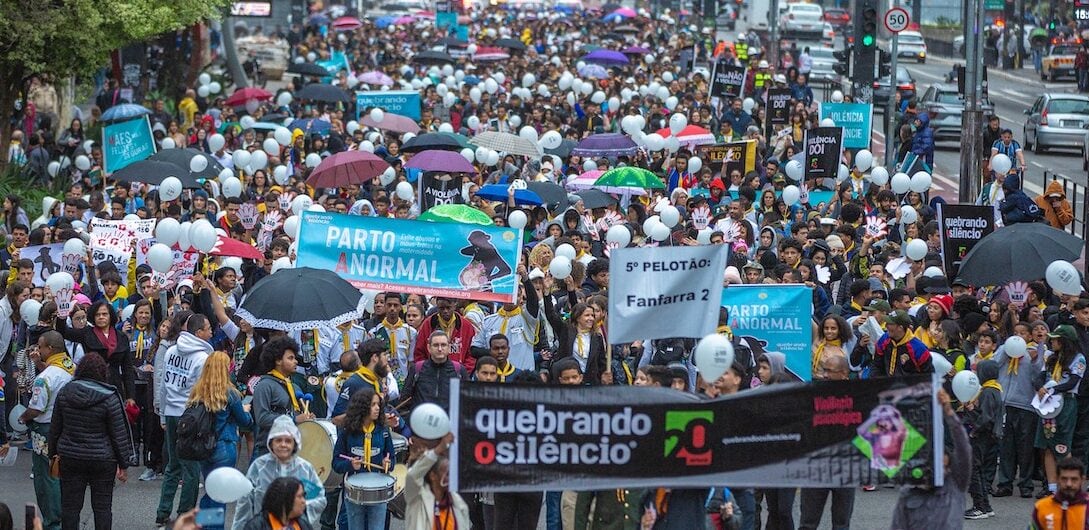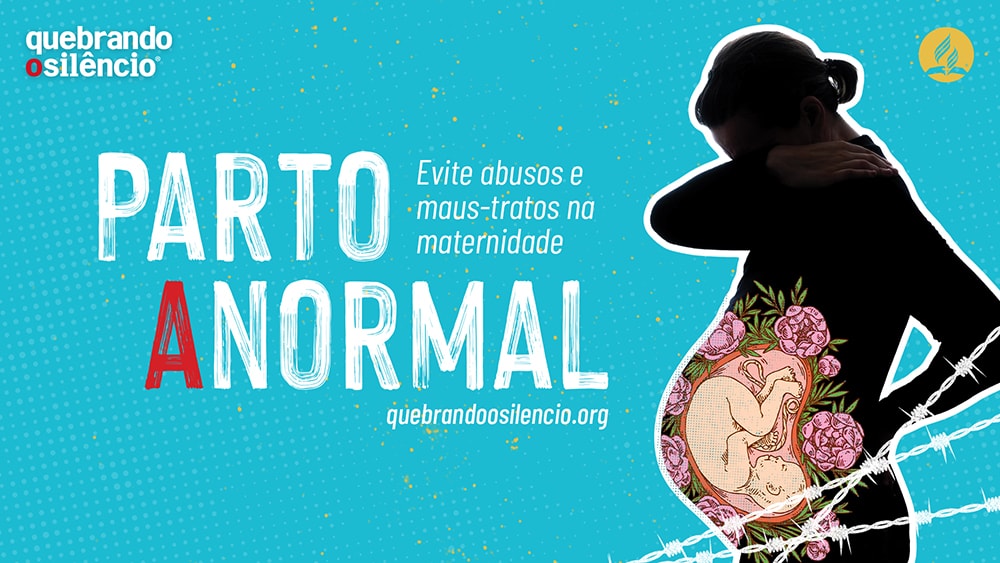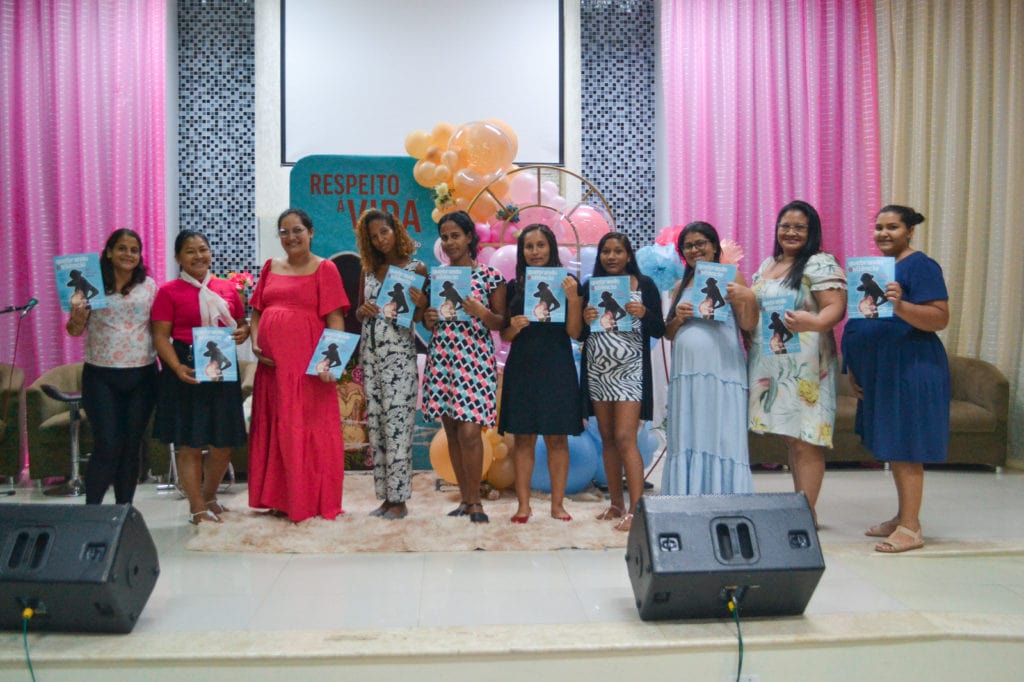
Every year, the Seventh-day Adventist Church in South America promotes the Breaking the Silence campaign to help prevent and fight different types of addictions and abuse. In 2023, leaders chose the Violence in Motherhood theme as the focus of the campaign, which launched across Argentina, Bolivia, Brazil, Chile, Ecuador, Paraguay, Peru, and Uruguay on August 26 and will continue throughout the year.
Among the activities included in the first day of the initiative, local churches, schools, and auditoriums offered fairs and free lectures open to the community. Women’s ministries leaders shared that church members distributed information and resources and provided guidance from experts on obstetric violence, family planning, management of emotions during pregnancy and motherhood, self-care and self-esteem of the mother, the importance of a support network, and the sharing of responsibilities between parents in childrearing.
“The goal was to identify, prevent, and overcome abuses against women during pregnancy and childbirth,” leaders said.
Baby Showers, Gifts, and Photo Shoots
For a group of 35 pregnant women in Manaus, Amazonas, Brazil, August 26 was a day to remember. A local Adventist church organized a baby shower that included gifts for the mothers and the future babies. A raffle helped leaders select five of the women for a free photo sitting. “I always wanted to have photos like these taken,” Samara Melo, a student, said, “but I haven’t been able to, because I must buy clothes and diapers for the baby. Here, I got both. I am so excited and surprised by the affection people showed to me.”
Like her, the women selected are not church members, event organizer Kellem Albuquerque explained. “Our goal was to provide information on pregnancy and early motherhood violence to these women. They received resources they took home, and we hope they can enjoy a peaceful pregnancy and delivery,” she said.




Other Initiatives
Several events across the region sought to draw the population’s attention to the chosen focus in 2023. In addition to parades and motorcades, event organizers rallied church members to visit hospitals to distribute layettes and offered free talks by professionals who explained the rights of pregnant women according to regional and national laws, organizers said.
In São Paulo, more than 15,000 people marched along a downtown street to call attention to violence against pregnant women. Organized by the women’s ministries department of the Central Brazil Union Conference, it included the participation of children and Pathfinders. Church leaders and government officers also attended.
Importance of the Issue
Leaders behind the initiative explained the importance of the issue. The arrival of a child is a unique moment and much awaited by most couples, women’s ministries leaders emphasized. Sometimes, however, what should be a happy moment is overshadowed by various types of abuses against women during pregnancy, childbirth, or the postpartum period.
On the other hand, an unwanted pregnancy, the result of an abusive relationship and/or without a support network, is also a disastrous scenario, with long-term negative repercussions on the lives of the mother and baby, they said.
During pregnancy and childbirth, obstetric violence is a traumatizing condition that, unfortunately, is more common than people might think, they explained. The term refers to the abuses practiced by some health professionals in the care of women in the different stages of pregnancy and in the first months of maternity. Inhuman care, which may involve physical, psychological, sexual violence or even the adoption of unnecessary procedures or without the patient’s consent, can injure their autonomy, generate unnecessary suffering, and result in serious psychological and even physical consequences.
In the puerperium, a partner’s lack of support in the care of the newborn, in household chores, and even comments about the physical condition of the woman or the way she takes care of the baby generate serious emotional problems that can lead to postpartum depression, a condition that affects almost half of the mothers, leaders explained.
Added to these cases are physical violence, which women may face from their partners during pregnancy, together with other situations of abuse. “The 2023 Breaking the Silence campaign focuses on several of these issues to create awareness in the public as a way of preventing and fighting violence in motherhood,” they said.
The original version of this story includes information from several reports that were posted on the South American Division Portuguese-language news site.